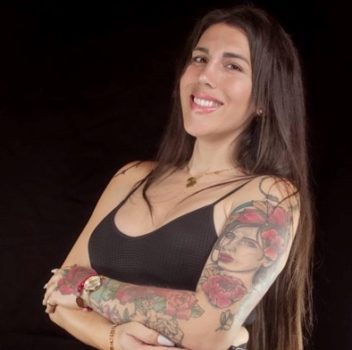
This June, to celebrate Global Pride month, the Consortium for Elections and Political Process Strengthening (CEPPS) is recognizing the essential work done by our partners to promote Lesbian, Gay, Bisexual, Transgender, Queer, and Intersex (LGBTQI+) equality. This spotlight focuses on the work of Centro para el Desarrollo y la Cooperación LGBTI (SOMOS CDC) in Honduras.
Grecia Florence Carranza O´Hara (ella/she/her) is the communications consultant for SOMOS CDC in Tegucigalpa, Honduras. The organization focuses on political advocacy, economic empowerment, knowledge management, and access to justice for the LGBTQI+ community. Find out more from Grecia in the interview below!
Describe some of the primary challenges to political participation facing LGBTQI+ people in Honduras.
The lack of legal recognition of gender identity in our country prevents a trans person, for example, from being able to participate in politics. Machismo, discrimination, and opposition by religious groups involved in decision-making make it very difficult for people who identify as LGBTQI+ to participate in politics. Media and the public go to great lengths to attack people for their gender orientation, identity, or expression without taking into consideration the capacities and ideas of the individual.
How is your organization working to mitigate barriers/challenges and eliminate discrimination against LGBTQI+ people in Honduras?
We primarily empower political activism geared toward LGBTQI+ people, build relationships with key actors, provide oversight, and create coalitions with different sexual diversity organizations within the country and the larger global community.
What opportunities exist to transform LGBTQI+ inclusion in Honduras?
Thanks to the work that sexual diversity organizations have done for years, now there are tools and knowledge to counter the high levels of stigma and discrimination against LGBTQI+ people and increase access to justice. Through training by organizations such as SOMOS CDC, we have an understanding of the complexity of the challenges faced by LGBTQI+ people. This includes a lack of awareness of rights; how to respond to really change a situation where our rights are violated; economic empowerment and enabling LGBTQI+ people to own their own businesses; and support during litigation processes, such as seeking recognition of name changes for trans people in the national registry. The training, communications, and political discourse have personally served me a lot and made me really feel that I am and can be part of the action to benefit our community.
What does pride mean to your organization?
Pride represents an opportunity to show the world and people who still do not know about LGBTQI+ people the work that is being done and the capacity for organization, advocacy, culture and art that we have as a community. Pride means that in the end, we all deserve respect and dignity regardless of our gender orientation, identity, or expression. Pride is a safe space, where diversity is part of an exchange of experiences and an opportunity to learn about different thoughts and strategies that have worked in other countries or spaces to reduce the levels of stigma and discrimination that we face as a community.

Centro para el Desarrollo y la Cooperación LGBTI headquarters